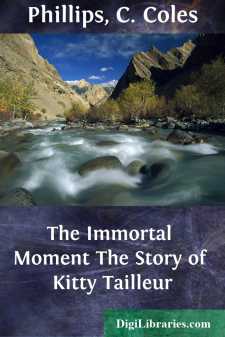Categories
- Antiques & Collectibles 13
- Architecture 36
- Art 48
- Bibles 22
- Biography & Autobiography 813
- Body, Mind & Spirit 142
- Business & Economics 28
- Children's Books 15
- Children's Fiction 12
- Computers 4
- Cooking 94
- Crafts & Hobbies 4
- Drama 346
- Education 46
- Family & Relationships 57
- Fiction 11828
- Games 19
- Gardening 17
- Health & Fitness 34
- History 1377
- House & Home 1
- Humor 147
- Juvenile Fiction 1873
- Juvenile Nonfiction 202
- Language Arts & Disciplines 88
- Law 16
- Literary Collections 686
- Literary Criticism 179
- Mathematics 13
- Medical 41
- Music 40
- Nature 179
- Non-Classifiable 1768
- Performing Arts 7
- Periodicals 1453
- Philosophy 64
- Photography 2
- Poetry 896
- Political Science 203
- Psychology 42
- Reference 154
- Religion 513
- Science 126
- Self-Help 84
- Social Science 81
- Sports & Recreation 34
- Study Aids 3
- Technology & Engineering 59
- Transportation 23
- Travel 463
- True Crime 29
The Immortal Moment The Story of Kitty Tailleur
Description:
Excerpt
CHAPTER I
THEY came into the hotel dining-room like young persons making their first entry into life. They carried themselves with an air of subdued audacity, of innocent inquiry. When the great doors opened to them they stood still on the threshold, charmed, expectant. There was the magic of quest, of pure, unspoiled adventure in their very efforts to catch the head-waiter's eye. It was as if they called from its fantastic dwelling-place the attendant spirit of delight.
You could never have guessed how old they were. He, at thirty-five, had preserved, by some miracle, his alert and slender adolescence. In his brown, clean-shaven face, keen with pleasure, you saw the clear, serious eyes and the adorable smile of seventeen. She, at thirty, had kept the wide eyes and tender mouth of childhood. Her face had a child's immortal, spiritual appeal.
They were charming with each other. You might have taken them for bride and bridegroom, his absorption in her was so unimpaired. But their names in the visitors' book stood as Mr. Robert Lucy and Miss Jane Lucy. They were brother and sister. You gathered it from something absurdly alike in their faces, something profound and racial and enduring.
For they combined it all, the youth, the abandonment, the innocence, with an indomitable distinction.
They made their way with easy, unembarrassed movements, and seated themselves at a table by an open window. They bent their brows together over the menu. The head-waiter (who had flown at last to their high summons) made them his peculiar care, and they turned to him with the helplessness of children. He told them what things they would like, what things (he seemed to say) would be good for them. And when he went away with their order they looked at each other and laughed, softly and instantaneously.
They had done the right thing. They both said it at the same moment, smiling triumphantly into each other's face. Southbourne was exquisite in young June, at the dawn of its season. And the Cliff Hotel promised what they wanted, a gay seclusion, a refined publicity.
If you were grossly rich, you went to the big Hôtel Métropole, opposite. If you were a person of fastidious tastes and an attenuated income, you felt the superior charm of the Cliff Hotel. The little house, the joy of its proprietor, was hidden in the privacy of its own beautiful grounds, having its back to the high road and its face to the open sea. They had taken stock of it that morning, with its clean walls, white as the Cliff it stood on; its bay windows, its long, green-roofed veranda, looking south; its sharp, slated roofs and gables, all sheltered by the folding Downs.
They did not know which of them had first suggested Southbourne. Probably they had both thought of it at the same moment, as they were thinking now. But it was she who had voted for the Cliff Hotel, in preference to lodgings. She thought that in an hotel there would be more scope, more chance of things happening.
Jane was always on the look-out for things happening. He saw her now, with her happy eyes, and her little, tilted nose, sniffing the air, scanning the horizon.
He knew Jane and her adventures well. They were purely, pathetically vicarious. Jane was the thrall of her own sympathy. So was he. At a hint she was off, and he after her, on wild paths of inference, on perilous oceans of conjecture. Only he moved more slowly, and he knew the end of it. He had seen, before now, her joyous leap to land, on shores of manifest disaster. He protested against that jumping to conclusions. He, for his part, took conclusions in his stride.
But Jane was always listening for a call from some foreign country of the soul....


